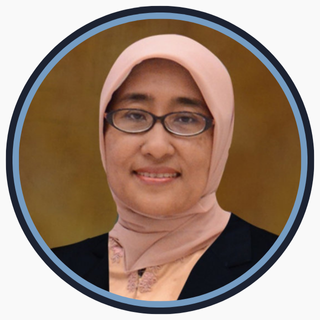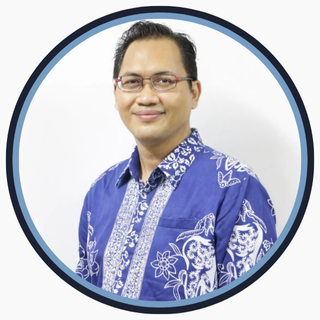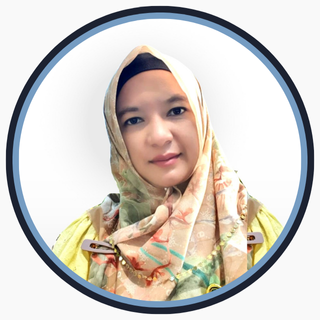Association Between Family Support and Post-Stroke Activity of Daily Living Autonomy
Downloads
The number of stroke patients in Indonesia has increased every year. Stroke has several impacts, namely disability that can affect or interfere with someone in conducting Activity of Daily Living (ADL). Stroke can also cause depression, so family support is needed so that stroke patients can do activities. This study aims to analyze the relationship between family support and independence in conducting ADL post-stroke. This study was an analytic observational study, with a research design that is a cross-sectional design. The sampling method uses simple random sampling with 47 respondents. The study was conducted at the Medical Rehabilitation Installation of the Haji Public Hospital, Surabaya in June-July 2015. The independent variables in this study were age, sex, work, and family support, while the dependent variable was ADL independence after stroke. The results of the study mentioned that the majority of post-stroke respondents were 43-61 years old, were male, and did not work. Most respondents get good family support so that respondents can be more independent in their activities. Based on the analysis using Chi-square, there is a relationship between family support and independence in performing ADL post-stroke, p-value = 0.018 with α = 0.05), but there is no relationship between age, sex, and occupation with ADL post-stroke independence. It is expected that the family creates a calm situation, as well as creating activities that are useful for the independence of people after stroke.
CDC, NCHS. 2015. Underlying Cause of Death 1999-2013.
Elkind, MS., Sacco, R. 2001. Stroke. Woburn: butterworth-heinemann: 100.
Engstrom, G., Hedblad, B., Rsovall, M., Janzon, L., Lindgarde, F. 2005. Occupation, Marital Status, and Low-Grade Imflammation: Mutual Confounding or Independent Cardiovaskular Risk Factors?. Journal of The American Heart Association, vol. 26 no. 1: 643–648.
Friedman, M.M. 1998. Keperawatan Keluarga: Teori dan Praktik. Jakarta: EGC.
Gerungan, WA. 1991. Psikologi Sosial. Bandung: PT Eresco.
Hall, M.J., Levant, S., DeFrances C.J. 2012. Hospitalization for stroke in U.S. hospitals, 1989–2009. Hyattsville: National Center for Health Statistics.
Irfan M. 2010. Fisioterapi Bagi Insan Stroke. Yogyakarta: Graha Ilmu.
Karunia, E. 2015. Determinan Kemandirian Aktivitas Kehidupan Sehari-hari (AKS) Pascastroke. Skripsi. Surabaya: Universitas Airlangga.
Kementrian Kesehatan Republik Indonesia. 2013. Riset Kesehatan Dasar (RISKESDAS). Badan Penelitian dan Pengembangan Kesehatan, Jakarta, Balitbangkes.
Kuntjoro. 2002. Hubungan Dukungan Sosial dengan Tingkat Sosial pada Lansia. Skripsi. Surakarta: Fakultas Ilmu Kesehatan Muhammadiyah.
Lingga, L. 2013. All About Stroke: Hidup Sebelum dan Pascastroke. Jakarta: Elex Media Komputindo.
Mozaffarian D., Benjamin E.J, Go A.S., Arnett D.K., Blaha, M.J., Cushman, M., de Ferranti, S., et al. 2015. Heart Disease and Stroke Statistics 2015.Journal of American Heart Association. Circulation 131; 29–322.
Murti, B. 2003. Prinsip dan Metode Riset Epidemiology. Yogyakarta: Gadjah Mada University Press.
Nurmalasari, N. 2013. Pengaruh Rehabilitasi Medik Terhadap Kecepatan Stroke Recovery pada Penderita Stroke Iskemik. Skripsi. Surabaya: Universitas Airlangga.
Padila. 2013. Buku Ajar Keperawatan Gerontik. Yogyakarta: Nuha Medika.
Rinajumita. 2011. Faktor-faktor yang Mempengaruhi Kemandirian Lansia di Wilayah Kerja Puskesmas Lampas Kecamatan Payakumbuh Utara Tahun 2011.Skripsi. Padang: Universitas Andalas.
Rosiana, E. 2012. Hubungan Dukungan Keluarga dengan Kepatuhan Menjalani Fisioterapi pada Klien Pascastroke di Instalasi Rehabiitasi Medik RSUD Sleman Yogyakarta. Skripsi. Yogyakarta: Universitas Respati: 11–15.
Smet, K.G. 2004. Social Support Survey. Journal of Social Science and Medicine, 32, pp. 705–06.
Stroke Association. 2015. Impact of Stroke (Stroke Statistics) http://www.strokeassociation.org/STROKEORG/AboutStroke/Impact-of-Stroke-Stroke statistics_UCM_310728_Article.jsp. [Sitasi 29 Juli 2015]
Wardhani, I.O. 2014. Hubungan Depresi dan Dukungan Keluarga dengan Kepatuhan Menjalani Rehabilitasi pada Pasien Pascastroke. Skripsi. Surabaya:Universitas Airlangga.
WHO. 2010. Global Burden of Strke. http://www.who.int/cardiovascular_diseases/en/cvd_atlas_15_burden_stroke.pdf. [Sitasi tanggal 30 Juli 2015]
- Every manuscript submitted to must observe the policy and terms set by the Jurnal Berkala Epidemiologi
- Publication rights to manuscript content published by the Jurnal Berkala Epidemiologi is owned by the journal with the consent and approval of the author(s) concerned. (download copyright agreement)
- Complete texts of electronically published manuscripts can be accessed free of charge if used for educational and research purposes according to copyright regulations.

JBE by Universitas Airlangga is licensed under a Creative Commons Attribution-ShareAlike 4.0 International License.























